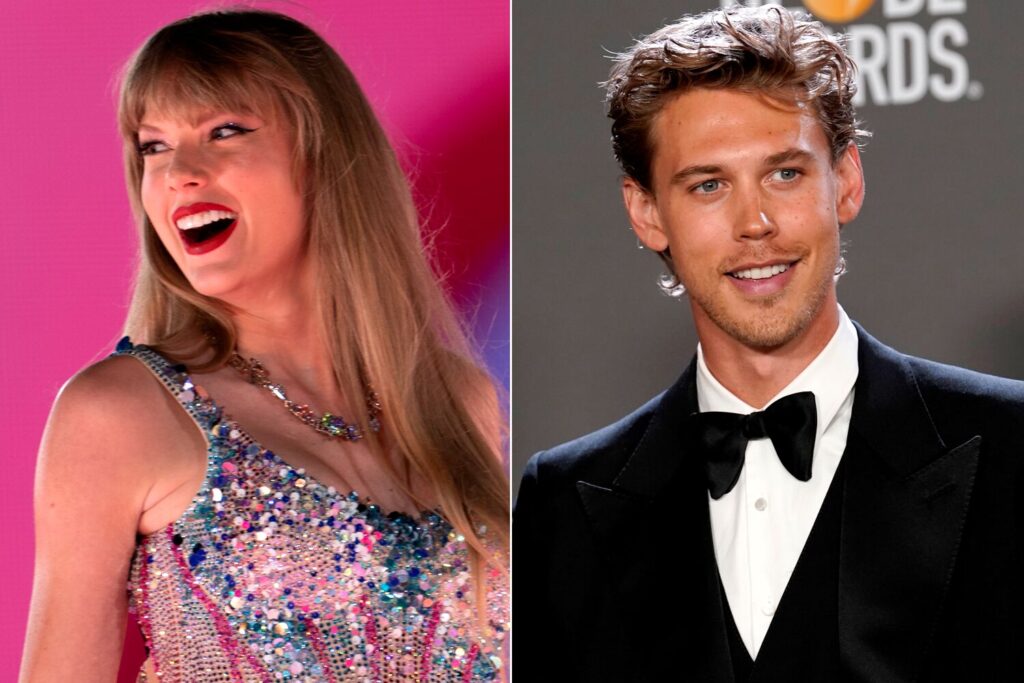The most exclusive club in Hollywood is once again parting the velvet rope, with the Academy of Motion Picture Arts and Sciences announcing Wednesday that it is opening its ranks to 398 new members.
Representing 51 countries, the list of invitees includes such boldface names as Taylor Swift, Austin Butler, Keke Palmer, Paul Mescal, Ke Huy Quan, Selma Blair and Bill Hader, as well as many performers, filmmakers, executives and below-the-line professionals whose names have never appeared in lights. The group includes 76 Academy Award nominees, such as “Banshees of Inisherin” co-star Kerry Condon and “Everything Everywhere All at Once” nominee Stephanie Hsu, as well as 22 past Oscar winners, including “Everything Everywhere” co-star Quan.
With the organization continuing to push for greater inclusion even after reaching its post-#OscarsSoWhite diversity goals, 40% of the members of the new 2023 class identify as women and 34% are from underrepresented ethnic/racial communities. A little more than half are from outside the United States.
Having achieved its goal in 2020, of doubling the number of women and people of color in its membership ranks, the academy has slowed the pace of overall growth in recent years. This year’s group of invitees is nearly the exact same size as in the last two years, which numbered 395 in 2021 and 397 in 2022.
Although still significantly larger than the annual groups of invitees in decades past, which were generally limited by quotas to around 100 members, this year’s class is less than half the size of 2020’s class of 819, which was itself smaller than the record-setting 2018 class that weighed in at a gargantuan 928. In 2021, the academy said it would return to more limited class sizes “to enable steady future growth and ensure the necessary infrastructure, staff resources and environment to support all academy members.”
Including the new class, according to the academy, 34% of its members identify as women while 19% are from underrepresented ethnic/racial communities, figures that are unchanged from last year’s benchmarks. In a landmark 2012 analysis, The Times reported that Oscar voters were at that time 94% white and 77% male.
Four branches invited more women than men this year, down from seven last year, including casting directors, costume designers, makeup artists and hairstylists and marketing and public relations. Two branches — actors and directors — drew the majority of their candidates from underrepresented ethnic/racial communities, down from three last year.
In the directors branch, the invitees include Daniel Kwan and Daniel Scheinert, a.k.a. Daniels, who won the directing prize this year for “Everything Everywhere All at Once” which also took home the best picture Oscar, as well as Edward Berger, whose “All Quiet on the Western Front” won the trophy for international feature this year and also scored a best picture nod.
In the music branch, which has brought in such pop stars in recent years as Lady Gaga and Billie Eilish, the invitees include Swift, whose song “Carolina” from “Where the Crawdads Sing” was considered a potential original song contender this year but failed to make the cut, and David Byrne, whose “Everything Everywhere” song “This Is a Life” earned a nomination this year and who shared an original score Oscar in 1988 with Ryuichi Sakamoto and Cong Su for Bernardo Bertolucci’s epic “The Last Emperor.”
In the executives branch, controversial Warner Bros. Discovery Chief Executive David Zaslav and Netflix Chief Content Officer Bela Bajaria were among the invitees.
The academy’s announcement comes as issues of inclusion continue to loom over Hollywood’s all-important awards season. In 2021, a Times investigation highlighted the fact that the Hollywood Foreign Press Assn., the tiny group that hands out the Golden Globes, included no Black members, touching off a firestorm that eventually led NBC to announce last month that it was pulling the awards off the air for 2022. The HFPA subsequently brought in hundreds of new members, and last month officially dissolved after 80 years, as the Globes transitioned into a for-profit enterprise.
“The Academy is proud to welcome these artists and professionals into our membership. They represent extraordinary global talent across cinematic disciplines and have made a vital impact on the arts and sciences of motion pictures and on movie fans worldwide,” academy CEO Bill Kramer and President Janet Yang said in a joint statement Wednesday.
If all accept their invitations, the film academy’s total membership will grow to 10,817, including 9,375 voting members.

